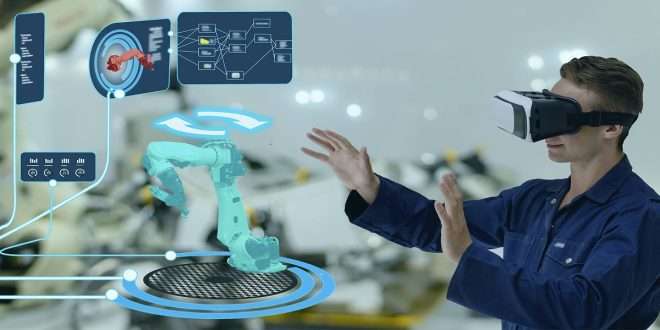Over the past few years, Virtual Reality has transformed from being a niche technology to a mainstream trend, and businesses are leveraging its power to create unique and unforgettable experiences for their customers. VR-Enabled CMS platforms have emerged as a game-changer, allowing content creators to deliver interactive and engaging content that immerses users in a virtual world. This article delves into the various aspects of VR-Enabled CMS platforms and how they can transform the way we interact with digital content.
Understanding VR-Enabled CMS Platforms
What are VR-Enabled CMS Platforms?
VR-Enabled CMS platforms are innovative systems that combine the capabilities of a traditional Content Management System with Virtual Reality technology. They empower content creators to develop and deliver VR content seamlessly, offering users an immersive experience. These platforms enable the integration of 360-degree videos, 3D models, and interactive elements into web content, making it more engaging and interactive.
How VR Enhances User Experience?
VR enhances user experience by transporting users into a virtual world where they can interact with content in a more natural and intuitive way. By offering a sense of presence and immersion, VR creates a deeper emotional connection with the content, resulting in increased user engagement and brand loyalty.
Advantages of VR-Enabled CMS Platforms
- Engaging Storytelling: VR enables brands to tell captivating stories in a way that captures the audience’s attention and emotions, leading to a memorable experience.
- Increased Interactivity: Users can interact with content elements, which fosters a deeper understanding of products or services.
- Personalization: VR-Enabled CMS platforms can tailor content based on user preferences, providing a more personalized experience.
- Data Analytics: These platforms offer valuable insights into user behavior, helping businesses optimize their content and marketing strategies.
Types of VR-Enabled CMS Platforms
Proprietary CMS with VR Integration
Some companies offer proprietary CMS solutions with built-in VR capabilities. These platforms are user-friendly and provide an all-in-one solution for creating and publishing VR content.
Open-Source VR CMS
Open-source VR CMS platforms provide a more customizable and flexible approach, as they allow developers to modify the code according to their specific requirements. This type of CMS is ideal for businesses seeking full control over their VR content.
Cloud-Based VR CMS
Cloud-based VR CMS platforms offer the advantage of accessibility, allowing teams to collaborate on VR content from anywhere with an internet connection. These platforms also handle the heavy processing required for VR content rendering, reducing the burden on local devices.
Benefits of Open-Source VR CMS
Open-source VR CMS platforms offer unique advantages that make them a popular choice among businesses:
- Cost-Effective: Open-source solutions often come without licensing fees, making them budget-friendly for small and medium-sized enterprises.
- Customization: Developers can modify the code to align the VR experience precisely with the brand’s vision and requirements.
- Community Support: Open-source communities contribute to the continuous improvement of the platform through updates and new features.
Commonly Asked Questions
Q1: What types of VR content can be created with VR-Enabled CMS platforms?
A1: VR-Enabled CMS platforms support a wide range of content types, including 360-degree videos, 3D models, interactive simulations, and virtual tours.
Q2: Is VR-Enabled content accessible to all users?
A2: While VR content offers a unique experience, it’s essential to provide alternative non-VR options to ensure accessibility for users without VR devices.
Q3: How do VR-Enabled CMS platforms benefit marketing strategies?
A3: VR-Enabled CMS platforms provide marketers with valuable data and insights into user behavior, enabling targeted campaigns and content optimization.
Q4: Are there any hardware requirements for experiencing VR content?
A4: Yes, users need VR headsets or compatible devices to fully experience VR content.
Q5: Which industries can benefit the most from VR-Enabled CMS platforms?
A5: Virtually any industry can benefit from VR-Enabled CMS platforms, including real estate, tourism, education, gaming, and retail.
Final Words
VR-Enabled CMS platforms have opened up a new frontier for crafting immersive digital experiences. By seamlessly integrating Virtual Reality into content creation, businesses can engage their audiences on a deeper level and leave a lasting impact. From interactive storytelling to personalized experiences, VR-Enabled CMS platforms are transforming the way we interact with digital content. Embrace this technology to stay ahead in the digital realm and deliver experiences that captivate and delight your audience.
 webfily
webfily


